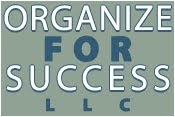- Have a clear purpose. If your meetings are focusing on simply updating attendees, they are not respecting everyone's limited resource of time. There are plenty of alternative means for conveying updates that are less intrusive to attendees, such as email or project management tools. Instead, meetings are most useful when focused on one of two purposes... either discussion or decision-making. If your meeting's purpose is not one of these, could the goal be achieved in a more efficient way by using another method or implementing new technology?
- Schedule strategically. Be cognizant of vacation plans so meetings are not scheduled when many who need to attend will be gone. Likewise, avoid scheduling a meeting in the days leading up to a big deadline, especially if the meeting is unrelated to the project coming due, or during times when there will be too many distractions for attendees to be focused on achieving the desired results. Finally, as attendees can better plan the remainder of their day if each meeting includes an end time in addition to a start time, be sure to set and communicate a specific ending time for each meeting.
- Invite only the right people. Include those whose contributions are necessary for fulfilling the meeting's purpose: those with the authority to make decisions, those with enough pull in the organization to advocate for what's decided, those with the expertise needed to make informed decisions and those necessary for successfully executing decisions made. Still, the Rule of 7 explains how "everyone in a meeting over 7 attendees reduces your ability to make decisions by 10%", hence why it's important to not include more than those whose contributions are necessary for accomplishing the meeting's goals as too many attendees lowers productivity.
- Shorten how long you'll meet. Rarely do meetings require an entire hour, but we tend to schedule them for that length anyway. Try to end meetings at least 10 minutes before the next hour, like 12:50, 1:50, etc, or schedule your meetings in 15-minute increments, like meeting at noon to 12:45 or 12:15 to 12:45. Then, push yourself to accomplish everything on the agenda within that shorter duration by using a timer or having someone serve as timekeeper. Attendees will appreciate those spare moments before the next hour to return calls, run to the restroom, grab a snack or gather their thoughts.
- Utilize an agenda. Make sure the agenda is realistic, listing what you actually believe can be accomplished within the scheduled time. Start with the most important items, and indicate how much time you intend to allocate for each item listed. Seek input from attendees to ensure everything needed is included while removing lower priorities or unrelated topics.
- Prepare beforehand. Distribute supplemental items with enough time for attendees to review. If there is legwork that can be done in advance, completing it beforehand will help the meeting run more smoothly. As explained by Dana Manciagli in The Triad Business Journal, "proper planning prevents poor performance". Taking time to get your ducks in a row before empowers better discussion and / or decision-making.
- Clearly communicate expectations. How does the meeting's leader want those attending to behave? Examples include coming prepared, contributing to discussions, giving feedback, sharing insights as applicable, making sure to ask questions and limiting technological distractions. Those expectations should be shared in writing prior to the meeting or verbally at the start. Additionally, attendees need to know guidelines for participating within the agenda, like when to ask questions, how to join in brainstorming and at what point it is appropriate to share feedback during any discussions. Meeting leadership should think proactively about what situations might arise related to each interaction and be specific with standards set.
- Make notes. If you have the agenda beforehand, you can use that skeleton as a framework for filling in your notes from the meeting. Highlight what is important, whether via a different color of ink, a real highlighter or simply a block to separate the content that matters most from everything else. Designate each task that must be done as it arises in conversation; then, end your meeting notes with a recap of the highlights, action items and timing of next meeting. This reinforces your commitment to the topic, helps with paying attention throughout and enables more easily referring back to any items covered earlier.
- Push discussion of issues arising throughout the agenda. Rather than deviating down a rabbit hole and stealing time from addressing all aspects of the meeting's designated purpose, denote on a separate list any issues not on the agenda as they arise; then, if there is extra time at the end, address each item. Alternatively, consider scheduling time on a later date for discussing or resolving those newly discovered topics.
- Ensure accountability for what's decided. Each action item arising from the meeting's discussions and decisions will require a deadline for its completion, particularly as every what that has a when is more likely to get done. Ensuring each task gets completed is more likely when there is someone being held accountable for its completion and a way to track progress being made. Assign someone to the completion of each task resulting from the meeting and decide how you'll confirm follow-through by the person being held accountable.
With what aspects of meeting others do you struggle most? What issues have you faced in keeping your meetings on track? How do you ensure your meetings are productive?


No comments:
Post a Comment